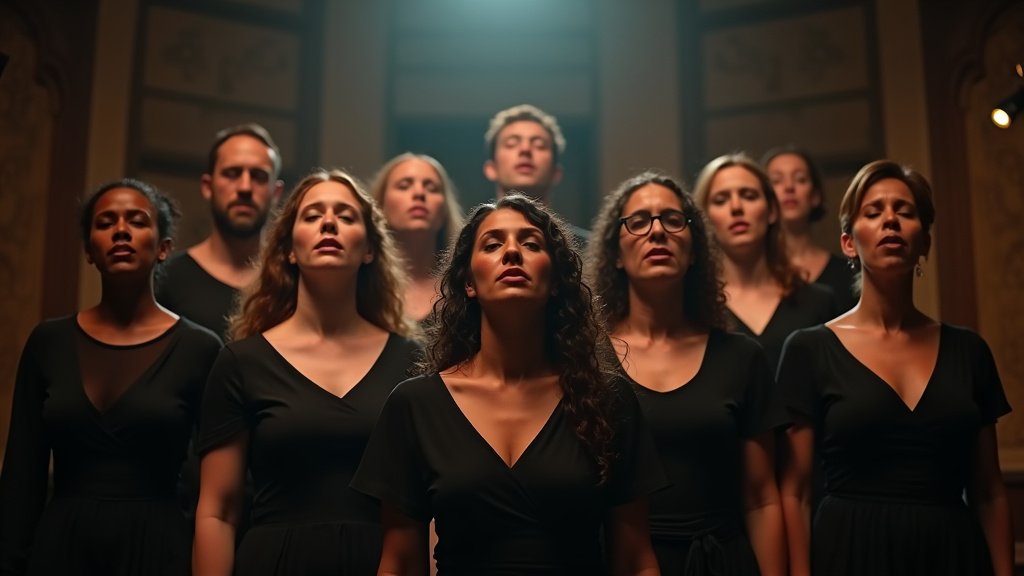GREENSBORO, N.C. – The storied Eastern Music Festival (EMF), a cornerstone of classical music education and performance in Greensboro for over six decades, announced its dissolution on October 6, 2025. The decision marks the end of an era for the renowned summer festival, which has nurtured thousands of young musicians and presented world-class artists. However, amidst the organizational shutdown, faculty artists and loyal supporters are actively exploring pathways to revive the cherished music events.
A Legacy of Musical Excellence
Founded in 1962 by Sheldon “Shelly” Morgenstern, the Eastern Music Festival quickly became a nationally recognized institution. Its mission was to provide intensive musical instruction and performance opportunities for aspiring young classical musicians from across the country and around the globe. For 64 years, EMF has been a significant cultural fixture, drawing hundreds of students and renowned faculty artists to Greensboro each summer. Its alumni include a remarkable roster of celebrated musicians and artists, many of whom credit EMF with shaping their careers and defining their early artistic journeys. The festival’s programming, featuring student orchestras, the professional Eastern Philharmonic Orchestra, and distinguished guest artists, has long been a highlight for the broader music community.
Labor Dispute Silences Festival
The dissolution follows a prolonged and ultimately irreconcilable labor dispute between the EMF board and the newly unionized faculty musicians. Negotiations for a first-ever collective bargaining agreement, which began in January 2024, broke down over fundamental disagreements regarding the festival’s operational control and future direction.
The faculty union, represented by the American Federation of Musicians (AFM) Local 342, sought increased compensation and housing stipends, along with assurances for job security and a commitment to maintaining the festival’s existing faculty numbers. A key demand from the union involved a model that would prioritize hiring a fixed number of tenured faculty to form a fully professional orchestra, which the board argued would limit opportunities for students.
The EMF board, conversely, maintained that flexibility in faculty size and programmatic decisions was crucial for upholding its core student-centered educational mission and ensuring the festival’s long-term sustainability. The board stated that faculty members failed to offer compromise on what they described as “intractable bargaining positions,” despite efforts by federal mediators.
Unresolved Negotiations Lead to Closure and Sanctions
These deep-seated differences led to the cancellation of the 2025 summer festival in February, a move that prompted the union to file an unfair labor practice charge against EMF. Subsequently, EMF was placed on the AFM’s International Unfair List, a designation that signals to union musicians that they should avoid engaging with the organization. The board cited the union’s demands for control over managerial, programmatic, and staffing decisions as a primary sticking point that prevented a mutually acceptable agreement.
“This board has made one of the most difficult decisions any nonprofit can face—but one we believe honors EMF’s proud history and legacy,” stated Anne Starr Denny, EMF Board Chair. “We could not agree to terms that, in our judgment, go against the Festival’s student-centered mission, are unsustainable, and would ultimately threaten EMF’s future.”
A Glimmer of Hope for a New Music Future?
Despite the official dissolution, faculty artists and supporters are not yielding. They have publicly expressed their commitment to finding a way forward and reviving the festival. There are indications that new plans are being formulated to continue the tradition of this significant music event, potentially under a new organizational structure. The board has indicated that EMF will transfer its remaining assets to suitable, mission-aligned nonprofit organizations as it ceases operations. While the specifics of these revival efforts remain in nascent stages, the determination of faculty and loyal patrons suggests that the music may not be entirely silenced in Greensboro. The news of the festival’s potential comeback is already generating buzz within the classical music community, with many hoping for a swift resolution that allows new music events to emerge from this challenging period. The pursuit of new artist opportunities and innovative music releases will undoubtedly be a focus for any future endeavors.
For now, the future of the Eastern Music Festival is uncertain, but the passion of its community signals that the legacy of this esteemed music institution may yet find a new voice.





